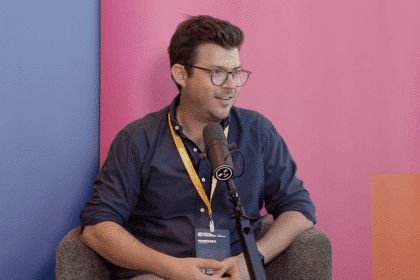Prime Minister Anthony Albanese has reportedly personally intervened to shelve a sweeping crackdown on gambling advertising, overruling his own Communications Minister, Michelle Rowland, in a high-stakes move to avoid upsetting media and sporting powerbrokers ahead of the 2025 election.
Sources inside the Labor Party say Rowland was poised to unveil long-awaited reforms after more than a year of negotiations with gambling companies, broadcasters, the AFL and NRL, and harm-reduction advocates. But Albanese stepped in late last year to put the policy on ice, effectively sidelining his senior minister and stalling one of Labor’s most anticipated communications reform packages.
“He threw her [Rowland] under a bus,” said anti-gambling campaigner Tim Costello, who has been an avid advocate for a full gambling advertising ban. “I know that Michelle Rowland wanted to introduce a ban on all social media and progress a national regulator for gambling, and to treat this as a health issue. She had support from other senior members of cabinet. V’landys is the prime minister when it comes to gambling. He won on this one.”
The shelving of the gambling ad restrictions follows the reveal of a series of high-level meetings between Albanese and influential media and sports executives earlier this year.
On August 30, 2023, the Prime Minister spent over 90 minutes engaging with key figures such as Network 10’s Beverley McGarvey, Seven Network CEO Jeff Howard, AFL CEO Andrew Dillon, NRL Chairman Peter V’landys, and Cricket Australia’s Nick Hockley. The discussions reportedly focused on the financial impact of advertising restrictions on media revenues and sporting organisations reliant on lucrative gambling sponsorships.
Both the AFL and NRL, which receive substantial revenue from partnerships with bookmakers like Sportsbet, Bet365, and PointsBet, have been among the most vocal opponents of the proposed restrictions.
Free-to-air television networks, which depend on advertising dollars from the gambling industry, have also expressed concerns that limiting gambling ads could further strain their already tight financial positions.
The proposed changes included a ban on online wagering ads, a cap of two TV gambling ads per hour before 10pm, and blackouts one hour before and after live sporting events. Though less extreme than a blanket ban, the measures represented the most serious regulatory threat to gambling advertising in years—a threat that triggered alarm among broadcasters and sporting codes who rely heavily on wagering revenues.
With influential voices like NRL boss Peter V’landys railing against the reforms as “nanny state ideology,” and concerns raised by major broadcasters including Seven West Media and Nine Entertainment, Albanese’s office opted to defer the proposal.
Rowland, a low-profile but highly trusted figure within cabinet and one of the few communications ministers to sit on the powerful expenditure review committee, was said to be determined to act on the recommendations of the 2022 Murphy report, which called for a phased ban on gambling advertising. But Albanese reportedly saw the reforms as a “lose-lose proposition”—believing media and sport would loudly oppose the plan, while anti-gambling advocates and teal MPs would continue to demand a full ban.
Albanese has publicly defended his record on gambling, telling reporters earlier this month that his government had “taken more action on gambling than any government in history”.
He pointed to the establishment of a national self-exclusion register for addicts—a first of its kind—as a significant step forward. Additionally, he cited the ban on the use of credit cards for gambling and the move to eliminate the vague “gamble responsibly” tagline from advertisements, replacing it with more direct messaging. While acknowledging that there is still more to be done, Albanese emphasised that his government has taken more action on this issue than any previous administration.
“There’s more to do. But … I’m proud that my government’s done more than any other government ever.”
Still, Rowland’s shelved reforms—and the way they were shelved—highlight the deep influence media and sporting organisations continue to wield over federal advertising policy. Industry insiders say any significant reduction in gambling ad volume would create a gaping hole in prime-time revenue.
While Labor maintains the reforms are “complex” and require further consultation, the internal fallout from the Prime Minister’s override has left many questioning the government’s commitment to tackling gambling harm.
For now, Rowland remains silent on the matter – with B&T’s request for comment receiving no response. But with the potential for a hung parliament after May’s election—and rising pressure from independent MPs who want gambling ads removed from sport altogether—the issue may not stay buried for long.








